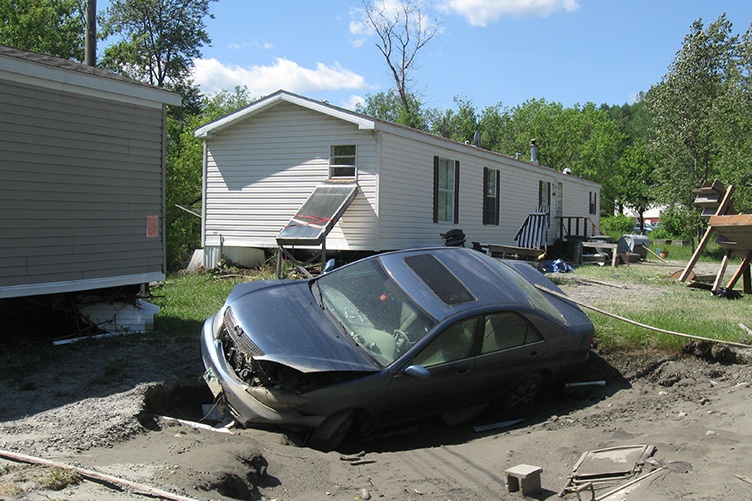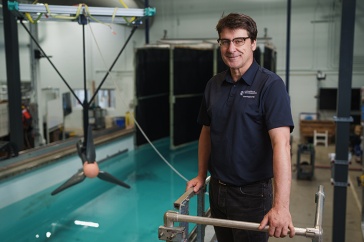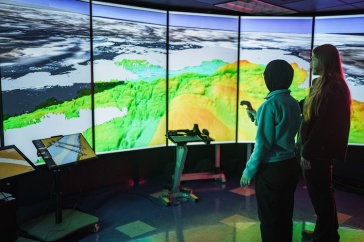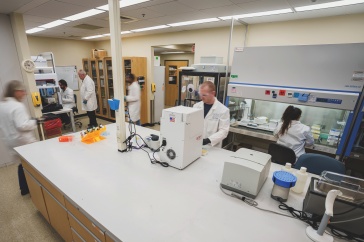
A mobile home community in Vermont. Courtesy of Kelly Hamshaw and Dan Baker of the University of Vermont who are part of the NOAA grant.
The University of New Hampshire is part of a new regional collaboration to study the climate change resilience of mobile home parks in the Northeast. With $79K in funding from the National Oceanic and Atmospheric Association’s (NOAA) Climate Adaptation Partnerships program, the project brings together researchers from the Universities of New Hampshire, Maine and Vermont, as well as all three northern New England state climatologists.
Mobile home park communities are commonly found in rural and ex-urban areas in the northern New England states of Maine, New Hampshire and Vermont. These communities are especially vulnerable to climate-related extreme events. Most parks were developed before land use regulations were in place and are sited in low-cost, but often unsuitable and hazardous locations vulnerable to risks presented by climate change.
“Mobile home park management structures and practices vary from one community to the next and in many parks, residents may own their home but not the land,” says Mary Stampone, co-principal investigator, UNH associate professor of geography and the New Hampshire state climatologist. “These factors present a different set of challenges, unique to mobile home park communities, that must also be considered when assessing the risks posed by climate change.”
The researchers will use the NOAA grant to develop a deeper understanding of how mobile home parks in Maine, New Hampshire and Vermont are being impacted by climate change. They will create a database of mobile home park communities in the three states — Vermont is the only of the three that currently maintains a mobile home park registry — and convene meetings with representatives of the mobile home park communities to determine climate change impacts in different ecoregions across the Northeast. The meetings will also build relationships that will support climate resilience efforts with mobile home park frontline communities.
The researchers will also identify key external agencies and connect local and non-local stakeholders like state agencies and nonprofits that can reduce the vulnerabilities of the communities to climate change. They will hold a final cross-state virtual meeting of all key stakeholders to discuss commonalities across each state and to develop an action roadmap for future collaboration and information sharing.
-
Compiled By:
Susan Dumais '88 '02G | College of Liberal Arts

















































